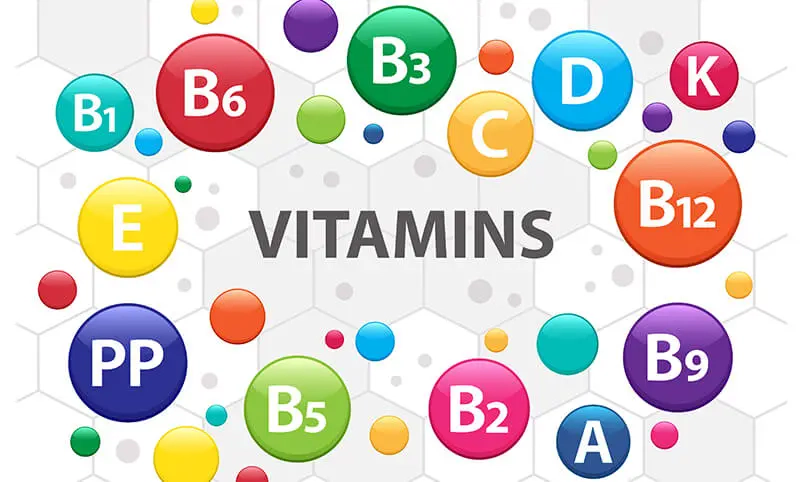In our journey to maintain health and wellness, understanding the role of vitamins is crucial. Often referred to collectively, each vitamin from Vitamin A-Z has unique functions and benefits that contribute to our body’s optimal functioning. This article will explore the essential roles and health benefits of key vitamins, providing insights into how they support our well-being.
Vitamin A: Essential for Eyesight and Beyond
In the list of Vitamin A-Z, vitamin A is renowned for its critical role in maintaining healthy vision, especially in low-light conditions. However, its benefits extend far beyond eyesight. Vitamin A is vital for immune function, playing a role in the immune system’s ability to fight off infections. It also supports skin health and cell growth. Dietary sources of Vitamin A include carrots, sweet potatoes, spinach, and dairy products.
The Sunshine Vitamin: Understanding Vitamin D
Often dubbed the “Sunshine Vitamin,” Vitamin D is unique as it can be synthesized by the body through sunlight exposure. Essential for bone health, it facilitates the absorption of calcium and phosphorus, thus preventing osteoporosis and supporting muscular function. Beyond its bone-related benefits, Vitamin D has been linked to reduced risks of multiple sclerosis and heart disease. The challenge, however, lies in getting sufficient amounts of sunlight and foods like fatty fish and fortified milk, making supplementation necessary for many.
Vitamin B Complex: Fueling the Body at the Cellular Level
The B Complex vitamins are a group of nutrients that work hand-in-hand to convert our food into energy, ensuring optimal metabolic function. They also play a crucial role in brain health, helping to maintain the health of nerve cells and supporting mental performance. From Thiamine (B1) to Cobalamin (B12), each member of this complex has a specific role in overall health and is found in various foods such as whole grains, meats, and legumes.
Vitamin C: More than Just a Cold Fighter
Vitamin C is most commonly associated with immune defense, particularly for its efficacy in combating the common cold. However, its benefits are more expansive, including promoting the synthesis of collagen, which is crucial for skin, hair, and joint health. Additionally, Vitamin C acts as a potent antioxidant, protecting the body against damage from free radicals.
Vitamin E: The Antioxidant Powerhouse
Known for its antioxidant properties, Vitamin E plays a crucial role in protecting the body’s tissues from free radical damage, which is linked to numerous chronic diseases. It supports the immune system, enhances skin health, and may help delay or prevent coronary heart diseases.
Vitamin K: The Key to Blood Clotting and Bone Health
Vitamin K is essential for blood clotting, a critical function that prevents excessive bleeding. Beyond its well-known role in blood coagulation, Vitamin K is also vital for bone health, helping to bind calcium to the bone matrix. Green leafy vegetables, such as spinach and kale, are excellent sources of Vitamin K.
Discovering Vitamin F: Essential Fatty Acids for Health
Although not a vitamin in the traditional sense, Vitamin F consists of essential fatty acids (EFAs) — linoleic acid and alpha-linolenic acid. These fats are crucial for maintaining cellular health, regulating cholesterol levels, and supporting overall cardiovascular health. Because the body cannot produce EFAs on its own, incorporating foods like flaxseeds, walnuts, and fatty fish into the diet is essential.
What’s the diet to get all Vitamin a-z?
Getting a complete range of vitamins from your diet involves including a diverse array of foods. Here’s a breakdown of the vitamins mentioned in the previous article and some common dietary sources for each:
Vitamin A
Rich sources of vitamin A include:
- Animal sources: liver, fish oils, milk, eggs
- Plant sources: carrots, sweet potatoes, spinach, kale, and other dark leafy greens; red peppers; and fruits like mangoes, apricots, and cantaloupe
Vitamin D
Vitamin D can be synthesized by the body with exposure to sunlight, but dietary sources are also important, especially in regions with less sunlight:
- Fatty fish like salmon, mackerel, and sardines
- Fish liver oils
- Fortified foods such as milk, orange juice, and cereals
- Egg yolks
Vitamin B Complex
Different B vitamins are found in a variety of foods:
- B1 (Thiamine): whole grains, pork, beans
- B2 (Riboflavin): milk, cheese, leafy vegetables, liver
- B3 (Niacin): chicken, turkey, beef, fish, nuts
- B5 (Pantothenic acid): chicken, beef, potatoes, oats, tomatoes
- B6 (Pyridoxine): fish, beef liver, potatoes, non-citrus fruits
- B7 (Biotin): eggs, almonds, spinach, sweet potatoes
- B9 (Folate): dark green leafy vegetables, citrus fruits, beans, peas
- B12 (Cobalamin): meat, fish, dairy products, fortified cereals
Vitamin C
Foods rich in Vitamin C include:
- Citrus fruits like oranges, grapefruits, and lemons
- Strawberries, kiwi, guava, and lychee
- Bell peppers, broccoli, Brussels sprouts, and tomatoes
Vitamin E
Sources of Vitamin E:
- Vegetable oils (such as wheat germ, sunflower, and safflower oils)
- Nuts (almonds, peanuts, hazelnuts)
- Seeds (sunflower seeds)
- Green leafy vegetables (spinach, kale)
Vitamin K
Vitamin K can be found in:
- Green leafy vegetables such as kale, spinach, and collard greens
- Broccoli, Brussels sprouts
- Certain vegetable oils (canola and soybean oil)
Vitamin F (Essential Fatty Acids)
Sources of essential fatty acids include:
- Flaxseeds and flaxseed oil
- Chia seeds
- Walnuts
- Fatty fish like salmon, mackerel, and sardines
- Hemp seeds
A Well-Rounded Diet
To ensure you’re getting all these vitamins, aim for a balanced diet that includes a mix of fruits, vegetables, whole grains, nuts, seeds, dairy (or fortified alternatives), and protein sources such as meat and fish. This variety not only provides a comprehensive spectrum of vitamins but also includes minerals and other essential nutrients for overall health.
Conclusion
All Vitamin A-Z each play distinct and crucial roles in supporting health and wellness. By incorporating a variety of vitamin-rich foods into our diets, we can harness these nutrients’ full potential, promoting long-term health and preventing various diseases. Remember, while the journey through vitamin A-Z is complex, the path to better health through proper nutrition is clear.




